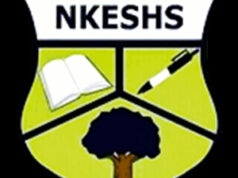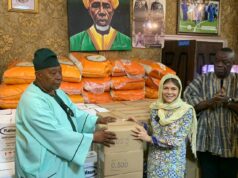Ghana stands at a critical crossroads. Our once pristine water bodies; the lifeblood of our communities, the foundation of our agriculture, and the source of our drinking water, are dying before our eyes.
The culprit? Illegal mining, locally known as “galamsey,” has unleashed an environmental catastrophe of unprecedented proportions, threatening not just our present, but the very future of water security in our beloved nation.
The statistics are staggering and sobering. According to the Water Resources Commission, over 60% of Ghana’s water bodies have been polluted by illegal mining activities. The Pra, Ankobra, Offin, Birim, and Tano rivers, once the pride of our communities, now run brown with sediment and toxic chemicals. These are not just rivers; they are the water sources for millions of Ghanaians.
The Ghana Water Company Limited faces an impossible task. Treatment plants designed to purify relatively clean river water now struggle daily with water so contaminated that conventional treatment processes are overwhelmed. In some areas, turbidity levels that is, the measure of water cloudiness have increased by over 400% in the past decade. Heavy metals including mercury, arsenic, lead, and cadmium now contaminate our water sources at levels that exceed World Health Organization safety standards by alarming margins.
The human cost is devastating. According to recent reports, approximately 5 million Ghanaians in mining affected regions struggle to access safe drinking water. Households that once drew water directly from nearby rivers now must travel kilometers to find clean water sources or spend significant portions of their meager incomes purchasing sachet water. In rural communities near mining sites, waterborne diseases have increased dramatically, with children bearing the heaviest burden.
The Ghana Water Company spends an estimated 60% more on water treatment in galamsey affected areas compared to regions with clean water sources. Despite these increased costs, they often cannot produce water that meets safe drinking standards. Some treatment plants have been forced to shut down entirely, unable to process the heavily polluted water. This is not a distant threat; it is our present reality.
If we continue on this trajectory, Ghana faces an unthinkable future: becoming a water importing nation. Yes, you read that correctly. A country blessed with abundant rainfall, numerous rivers, and Lake Volta; one of the world’s largest man-made lakes may soon depend on imported water for survival.
Consider this: while we debate and delay, our West African neighbor Cape Verde, with far less water resources than Ghana, has developed water importation plans as part of their water security strategy. Are we prepared for Ghana to follow this path? Can our economy sustain the foreign exchange burden of water imports? Can we accept the national humiliation of being unable to provide our people with something as basic as drinking water despite our abundant natural endowment?
The threat extends beyond drinking water. Agriculture, industry, and economic development all depend on water. Contaminated water means contaminated food crops. Fish populations in our rivers have collapsed, devastating livelihoods of riverside communities. The textile, brewing, and food processing industries face increasing costs and operational challenges due to water quality issues.
Our entire economic future is at stake!
The Game-Changing Solution Ghana Needs Today
But I write today not just to lament our crisis, but to herald hope. After witnessing first hand the remarkable capabilities of DIOTIN; an investment company who have invested in and tested their advanced water treatment solutions in Ghana. I am convinced we have found a game-changer that can start the fight to reclaim Ghana’s water security today.
DIOTIN technology works through the powerful oxidative properties of chlorine dioxide (ClO2), a highly effective water treatment compound that has been used globally for decades in municipal water systems but has never been used effectively in remote locations due to reliability and safety issues. Now, for the first time this powerful solution can be delivered easily, and safely even at the most remote locations, where contamination from mining originates. What makes DIOTIN particularly revolutionary for Ghana’s crisis the simplicity in which it neutralizes the specific contaminants plaguing our water bodies. The team tested multiple variants of their technologies, sampled and treated water from the river Ankobra and the result was breathtaking; water that looked deep brown transformed to clear water within minutes. All their tests were then validated by independent government labs. Having spoken to the team multiple times now, I understand that their core goal was to develop a practical cost-effective solution that could be applied today, by local Ghanaians, delivering results that could be seen by all, and start the process of improving our water. The key thing that has impressed me are the length the group have gone to deliver a practical solution for Ghana today, in its current state, and not a future plan that requires significant capex before any results are seen in the years to come.
Since seeing the results, I have been learning more about Chlorine dioxide and how it works. Its oxidative power targets the heavy metals that conventional water treatment struggles to remove. Mercury, arsenic, lead, and cadmium; the signature pollutants of galamsey activities are oxidized and rendered harmless through
DIOTIN’s treatment program. The process breaks down these toxic metals into compounds that can be safely removed through filtration or settle as harmless sediments.
Beyond heavy metals, DIOTIN’s solution effectively address the high turbidity that overwhelms Ghana Water Company treatment plants. Their tested and independent validated processes, causes suspended particles to coagulate and settle rapidly, clarifying water that conventional treatments cannot handle. Simultaneously, DIOTIN eliminates bacteria, viruses, and other pathogens, providing comprehensive water purification in a simple treatment process that can be deployed in areas closest to the sources of pollution.
Critically, DIOTIN’s treatments achieve these results without producing the harmful byproducts associated with traditional chlorination. This is particularly important given the volume of organic matter present in our polluted rivers, which can react with conventional chlorine to create harmful and carcinogenic compounds. DIOTIN’s technologies avoid these dangerous byproducts while delivering superior purification results.
The DIOTIN team’s recent visit to Ghana represents a watershed moment for our nation’s water security. Their meetings with His Excellency the President, the Minister for Lands and Natural Resources, and the CEO of the Environmental Protection Agency signal high-level recognition that innovative solutions are essential to addressing our water crisis. What separates this solution is the immediacy, it is designed to go to work today utilizing the skill and infrastructure in place today, to start showing Africa an achievable first step towards cleaner safer water.
This is far from unproven technology. Chlorine dioxide has a decades-long track record of safe, effective use in water treatment globally, from municipal systems in developed nations to emergency water purification in disaster zones. What DIOTIN brings to Ghana is this proven technology specifically optimized and simplified for the unique contamination profile created by galamsey operations and in a format that can be deployed by our own people.
The fact that government at the highest levels is engaging with this solution should give every Ghanaian hope. It signals a willingness to look beyond conventional approaches that have proven inadequate to our unprecedented crisis. It demonstrates openness to innovation and partnership in solving our most pressing environmental challenge today.
At the core of DIOTIN’s plans are investment in education, in job creation for Ghanaians. This technology can be a huge job creator, which in turn will result in greater awareness of how to clean and maintain our water.
A CALL TO ACTION: THE TIME IS NOW
As a youth advocate who has spent years working to empower the next generation of Ghanaian leaders, I am acutely aware that the water crisis we face today will define the Ghana my generation inherits. We cannot afford paralysis by analysis. We cannot allow perfect to be the enemy of good. We need solutions that work, and we need them now.
DIOTIN represents such a solution, but technology alone is not enough. We need collective will to act. We need government to fast track approval processes for proven water treatment technologies. We need investment in deployment infrastructure. We need mining companies to take responsibility for remediation. We need communities to demand action from their leaders. And we need every Ghanaian to recognize that water security is not someone else’s problem, it is our shared crisis and our shared responsibility.
To my fellow youth, I say this: our future is being determined right now. If we do not act decisively to reclaim our water security, we will spend our productive years managing scarcity instead of building prosperity. We will explain to our children why we allowed the rivers to die when solutions existed. We cannot let this be our legacy.
To policymakers and government officials, I urge swift action. The technology exists. The crisis is urgent. The cost of inaction far exceeds the investment in solutions. Every day of delay means more communities without safe water, more children drinking contaminated water, and Ghana moving closer to the unthinkable scenario of water importation.
To development partners and the international community, Ghana’s water crisis deserves the same urgency as any humanitarian emergency. We need technical support, financing mechanisms, and knowledge transfer to deploy solutions at the scale our crises demands.








